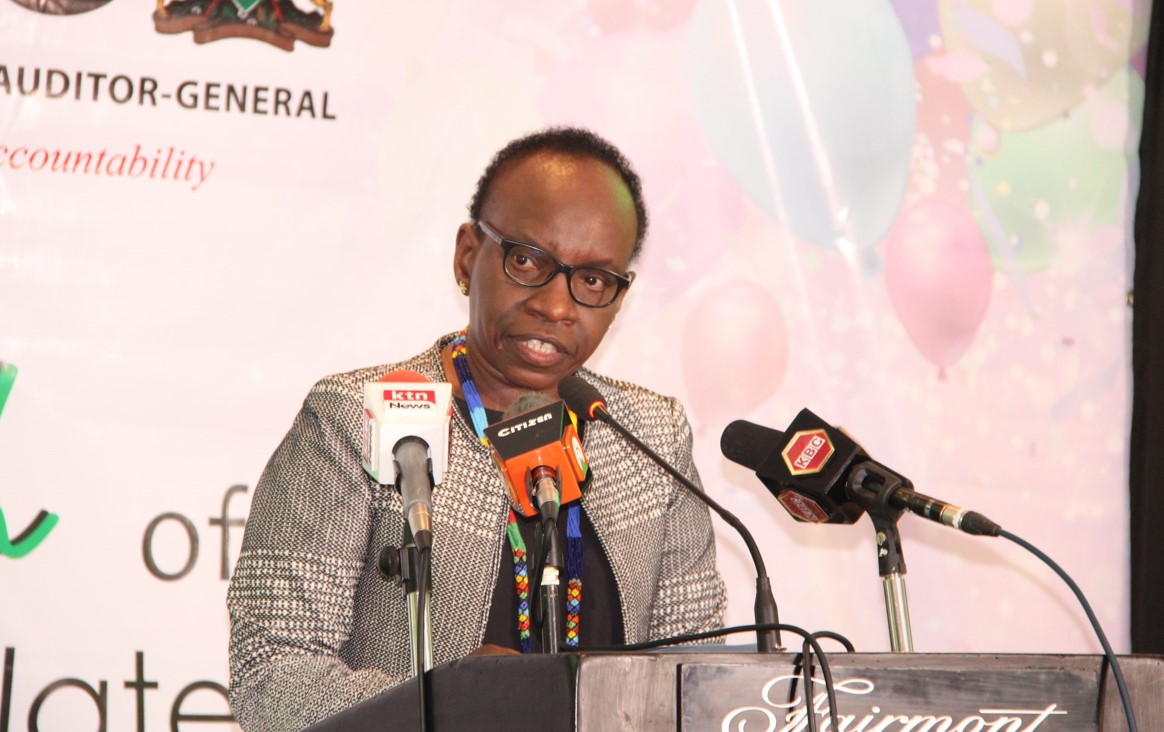Counties' debt mounts as Auditor-General warns on unrealistic budgets, ballooning pending bills

This financial strain comes as counties grapple with outstanding debts to contractors and suppliers, amounting to at least Sh156.3 billion due to over-commitment.
Counties' debt mounts as Auditor-General warns on unrealistic budgets
Counties are under increasing pressure after taking up expensive commercial loans to fund recurrent expenses, leading to massive pending bills.
More To Read
- Only two of 63 performance audits discussed by MPs since 2012 - Auditor General
- Counties exposed as Auditor General flags major in emergency preparedness
- State agencies, counties owe Kenya Power Sh4.67 billion in unpaid bills - Auditor General
- Top schools flagged for illegal fees and uniform procurement in Auditor General’s report
- Judiciary faces Sh576.6 million pending bills amid budget review
- Auditor General calls for penalties on officers who ignore audit recommendations
This financial strain comes as counties grapple with outstanding debts to contractors and suppliers, amounting to at least Sh156.3 billion due to over-commitment.
The Senate County Public Investments and Special Funds Committee chaired by Vihiga Senator, Godfrey Osotsi raised concerns over county governments' growing reliance on costly loans for operational costs, pushing them into unsustainable debt.
This trend has triggered warnings that counties may soon be required to craft budgets that reflect actual revenue raised from their sources and Exchequer releases.
This move aims to curb the rising burden of pending bills, which continue to mount across the counties.
While addressing a Senate watchdog committee, Auditor-General Nancy Gathungu highlighted that counties often commit to projects beyond their financial capacity.
"Counties overextend themselves by budgeting with revenue projections that are not feasible. They come up with a figure that is an assumption, then commit expenditure as if the funds are available," she explained.
She recommended implementing strict guidelines to prevent counties from resorting to commercial loans, suggesting that they should focus on boosting their own-source revenue instead.
Gathungu said county governments should not carry forward pending bills older than two financial years, arguing that these bills should be treated as public debt. "Let us tighten the controls," she added.
Nominated Senator Tabitha Mutinda voiced her doubts, questioning the transparency of the loan agreements between counties and banks. She noted that it remains unclear how these loans are negotiated.
 Senate Committee on County Public Investment and Special Funds during a meeting with Auditor General Nancy Gathungu on September 4, 2024, at Parliament Buildings, Nairobi. (Photo: Senate)
Senate Committee on County Public Investment and Special Funds during a meeting with Auditor General Nancy Gathungu on September 4, 2024, at Parliament Buildings, Nairobi. (Photo: Senate)
As a result, The Auditor-General urged the lawmakers to legislate a ban on counties approving unrealistic budgets.
Vihiga Senator Godfrey Osotsi, who chairs the committee, emphasised the need for firm action to prevent counties from incurring unmanageable debts. He supported calls for legislation that would prohibit counties from carrying forward unpaid bills beyond two financial years.
Overambitious budgeting
Other Topics To Read
The Auditor-General cited Nairobi County's budget as an example of overambitious planning. Governor Johnson Sakaja's administration announced a budget of Sh43.56 billion for the Financial Year ending on June 30, 2025.
To finance this record budget, City Hall projects collecting Sh20.06 billion from its own sources, excluding funds from the facilities improvement fund.
This amount is expected to be supplemented by Sh22.5 billion in conditional grants and Exchequer transfers.
However, there is uncertainty about the latter, as the national government plans to cut county allocations by Sh20 billion.
In the last Financial Year which ended on June 31, 2024, Nairobi County collected Sh12.8 billion, its highest-ever local revenue.
Despite this achievement, the figure fell short of the Sh20.06 billion target by Sh7.26 billion.
Gathungu criticized counties for filling this gap with loans, without addressing revenue generation issues. She questioned whether counties would collapse if the national government failed to meet its revenue targets.
Migori Senator Eddy Oketch raised concerns over the potential for corruption in pending bill payments, pointing to "ghost" contractors and suppliers as possible avenues for siphoning off public funds.
Narok Senator Ledama Olekina also called for stronger oversight, urging the Auditor-General's office to audit county budgets and ensure they only reflect funds actually available.
Pending bills crisis
According to a report by the Controller of Budget, Dr Margaret Nyakang'o, Nairobi City County accounts for a staggering 68.5 per cent of the total stock of pending bills, amounting to Sh107.04 billion as of December 31, 2023.
Other counties with significant pending bills include Kiambu (Sh5.71 billion), Mombasa (Sh3.92 billion), Machakos (Sh3.03 billion), Mandera (Sh2.3 billion), and Busia (Sh2.29 billion).
Gathungu also pointed out that counties have long blamed delayed disbursements from the national government for their pending bills.
However, she noted that there is often no direct correlation between the outstanding Exchequer releases and the unpaid bills.
"Counties should then be able to clear their pending bills once they get the full disbursement, but that never happens. Most of the pending bills are more than two years old, yet counties never fail to get their full allocations," she explained.
As counties continue to face probes, it remains to be seen whether stricter laws and enhanced financial discipline will bring an end to the growing crisis of pending bills and over-commitment.
Top Stories Today










































